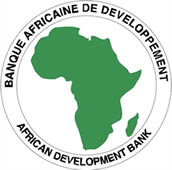 Private Enterprise Federation
Advocacy, Business Development and Market Access
Private Enterprise Federation
Advocacy, Business Development and Market Access
Advocacy, Business Development and Market Access
The Private Enterprise Federation
This colloquium, coming so soon after the First National Forum on Harnessing Research, Science and Technology for Sustainable Development of Ghana, held at the International Conference Centre, Accra, from March 15th to 19th, 2004 encourages me to amplify, explain further and contextualize better, some of the following key statements I made and ideas I espoused within the constraints of the planned period of the forum when I spoke on
Agriculture has long been an important sector of the economy, employing about 50 percent of the labour force. At the end of 2014, the sector contributed an estimated 19.9 percent to the country’s GDP (Ghana Statistical Service). Cocoa is the major export crop, followed by timber and non-traditional products such as horticulture, fish/sea foods and pineapple. The Agriculture sector continued its trend of increasing growth, growing at 5.3 percent in 2014 compared with 5.2 percent in 2013 and 2.3 percent in 2012. This was mainly on account of growth in the Crop, Livestock sub sector and the Fishing sub sector. In addition, the recent investments made in the development of the Agricultural Industry bodes well for sustained growth in the Industry.
The Private Enterprise Foundation (PEF), was founded on the initiative of four major business associations: Association of Ghanaian Industries (AGI), Ghana National Chamber of Commerce (GNCC), the Ghana Employers Association (GEA), and the Federation of Associations of Ghanaian Exporters (FAGE), which have felt the need to come together to exert greater influence on policy initiatives for the creation of an enabling environment in which private sector businesses can thrive as partners in the Economic Development of the Country. PEF is a non-profit making, non-political, autonomous institution,
The National coordinator of the Ghana Capacity 21 Programme, Mr. S. 0. Saaka apologized on behalf of the Chief Director of the Ministry for Environment Science and Technology for his inability to be at the workshop due to other equally important engagements. He said, it has been about a year since PEF began planning for this workshop and the UNDP/Ghana Capacity 21 Programme assisted in organizing their focal persons in the various districts to be part of this workshop. He lauded PEF's efforts in going beyond Accra and Kumasi and to the remote parts of the country to draw participants for this workshop.
Ghana has been undergoing a process of financial sector restructuring and transformation as an integral part of its Vision 2015 strategy. Prior to 2003, the Bank of Ghana, Ghana’s Central Bank, operated a three-pillar banking model with all banks licensed as either development, merchant and commercial banking. In February 2003, the Bank of Ghana introduced Universal Banking which allowed the banks to undertake commercial, development, merchant or investment banking without requiring separate licenses. This has levelled the playing field, and opened up the banking system to competition, product innovation and entry.
The Companies Code was enacted and promulgated in 1963 (Act 179), and has ever since been in force. Since it was drafted by the famous Professor L. C. B. Gower and promulgated, forty (40) years have elapsed - Ghana and the world have moved on in directions that could not have been anticipated by Gower.
The Companies Code lists the guidelines and regulations on how companies are formed and governed, as well as define the tone of relationship between the state and companies. A good Companies Code emphasizing good corporate governance as well as a clear regulatory framework and acceptable burdens of corporate compliance is a driving force for investment flows.
During the 1960s and 1970s most developing countries including Ghana: - were of the strong conviction that governments alone reserved the right to promote and advance the cause of national economic development.In the 1980s and 1990s- however- the conviction yielded to the pursuit of a market economy as the vehicle for the promotion of entrepreneurial development- which leads to a more efficient allocation of resources and motivates business creation and expansion. Consequently developing countries are now relocating the drive of economic development from government to the private sector.
The country may be classified into three main agriculture zones. The forest vegetation zone: consists of parts of Western, Eastern, Ashanti, Brong-Ahafo and Volta Regions. The northern savannah vegetation zone: The Upper East, Upper West and Northern Region; the coastal savannah: includes the Central, Greater Accra and parts of Volta Region. The northern savannah zone is the largest agriculture zone. Most of the nation’s supply of rice, millet, sorghum, yam, tomatoes, cattle, sheep, goats and cotton are grown in the region.
The health industry comprises all firms directly involved in the production and promotion of health care. These include all firms (both public and private) operating in the health market and are involved in the manufacturing of health products, provision of health care, health enhancing services and generation of knowledge in support of health.
The health industry as a new concept has not been recognized and analyzed. The capacity of the local manufacturing industry is under-utilized and the potential of Ghana’s herbal and traditional medicines is largely untapped.The role of this industry in wealth creation is in sustaining health services and creating jobs.
The government of Ghana has encouraged the development of non-traditional industries over the past decade in order to diversify the country's export base. Horticulture has been a central and a major benefactor of these efforts. Four main horticultural enterprises can be found in Ghana. They are: Vegetable crop production, Fruit crop production, Landscape horticulture, Floriculture, Nursery stock production. The major crops that are mainly produced in the horticultural sector include the following: Pineapple, Mango, Papaya, Banana, Citrus, Chili pepper, Tomatoes, Plantain, Other fruits and vegetables. Production of exotic (European) vegetables such as lettuce, cabbage, cauliflower, onion, spinach, tomato, carrot, French bean, turnip, cucumber, beet, and radish is concentrated in and around the principal towns and cities of the country.



































